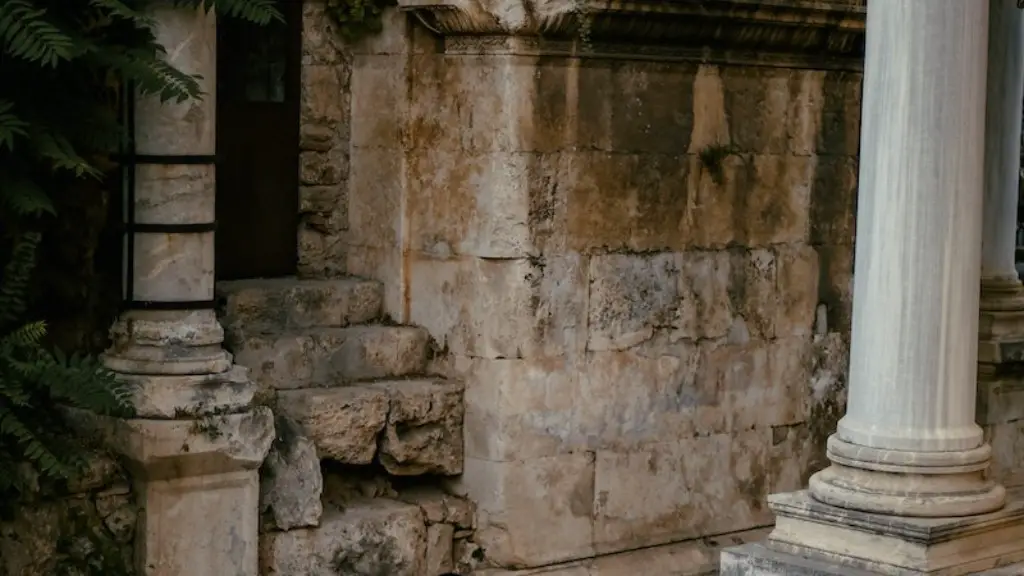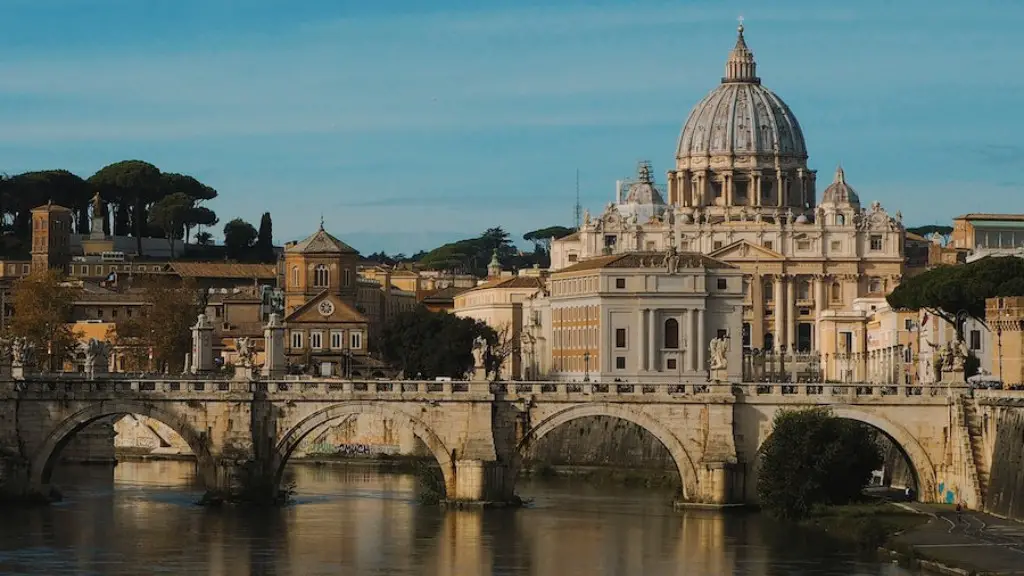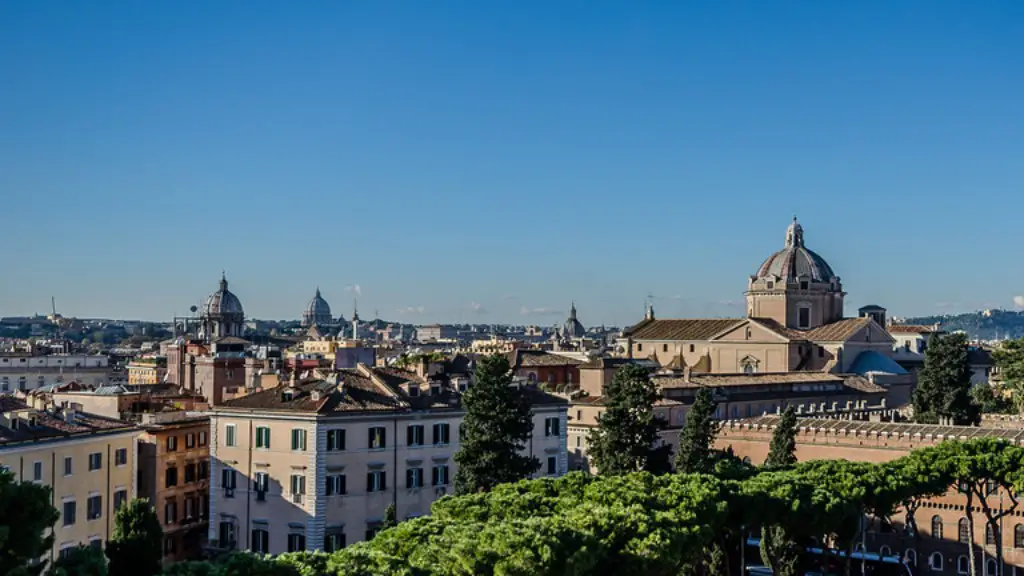Political And Economic Stability
Ancient Rome was renowned for its political stability and economic power. During the time period of the Republic and the Empire, there were periods of both internal and external stability. Rome was one of the most powerful powers of the Mediterranean. The Republic was established in 509 BC and lasted until 28 BC when Julius Caesar was appointed as dictator and replaced it with an Empire. Under the strong rule of Julius Caesar and his successors, Augustus and Trajan, Rome grew to become the largest and most influential city in the known world. Roman engineers constructed an effective and far-reaching network of roads, which connected provinces in the Roman Empire. The economic bedrock of Ancient Rome was a citizens’ market system, made up of three levels: slave labour, renters, and free workers. The magnificence of Roman public works such as Aqueducts, monuments, amphitheaters, and public baths were the result of their financial success and stability.
Religious Toleration
Rome was a largely polytheistic society, with many different religious cults practiced within its walls. Ancient Romans were known to be open-minded when considering new religions, as evidenced by their adoption of Eastern religions such as Mithraism, which was likely brought back by Roman soldiers fighting in the East. In addition, the Roman Empire tolerated (and sometimes encouraged) the spread of Christianity. Christianity was able to spread throughout the empire largely due to the granting of religious rights to Christians. This religious freedom allowed Christians to set up churches and practice their faith without fear of persecution.
Urbanization and Infrastructure
Roman civilization was facilitated by the impressive network of roads that crisscrossed the empire. These thoroughfares were the lifeblood of the Roman Empire, connecting cities, facilitating trade, and allowing for troop movements and supply trains. Roman engineers were also responsible for the construction of various public works, such as aqueducts, stadiums, and bridges. In addition, the city of Rome boasted impressive public buildings, such as temples, colonnades, and the Colosseum. These buildings were crucial to Ancient Roman society, as they showed the wealth and power of the Roman state and allowed Romans to display their accomplishments.
Law And Order
A major strength of the Roman Empire was its strong legal code. The Roman system of justice was based on the ‘ius gentium’ or ‘law of nations.’ This legal framework was adopted by many nations after the fall of the Roman Empire and is still used by several countries today. The Romans were also known for their system of taxation, which was designed to be fair and effective. This system allowed the Roman state to acquire the resources needed to build and maintain its impressive infrastructure.
Culture And Education
The Romans were well known for their culture and learning. The Romans adopted and improved upon the philosophies of their predecessors and created a strong intellectual tradition of their own. Education was an integral part of Roman life, and students could attend schools and universities to learn. Schools were particularly popular in the Empire, as they provided children with the opportunity to receive an education.
Military Might
The Roman Empire was famed for its military prowess, and it was one of the major powers of the Mediterranean. The Roman army was well-organized and well-equipped, and Roman soldiers were among the most feared warriors in the ancient world. The Roman army was also responsible for the construction of impressive fortifications such as Hadrian’s Wall in Britain and the Limes Germanicus in Germany.
Unifying Language And Currency
The strength of the Roman Empire was largely due to its cohesive and unified nature. Latin was the language of the Empire, and it was the language of diplomacy, trade, and commerce. The Roman currency, the Denarius, was another example of the Empire’s unified nature. The Denarius was used by all citizens of the Empire and by its neighbors, thus unifying and strengthening the Roman economy.
Military Expansionism
The Roman military was one of the most powerful in the ancient world. Rome was able to expand its borders and create a vast Empire because of its military might. Rome’s military was organized, trained, and well-equipped, enabling it to conquer the lands of its rivals and occupy them for long periods of time. In addition, Rome was able to create alliances with other powers, which strengthened its military power and furthered its expansion.
Desire For Power And Status
The Roman people had a deep desire for power and status. From the time of its founding, Rome was characterized by a sense of competition and ambition. The powerful Roman ruling class sought to increase their own influence and power through military conquest, political maneuvering, and economic expansion. This ambition was the driving force behind the growth of the Roman Empire and the development of its culture and society.
Examples Of Greatness
Ancient Rome’s greatness can be seen in the impressive accomplishments of its citizens. Roman law, engineering, architecture, and literature are still studied and admired today. The Roman Empire was also renowned for its art, sculpture, and literature, which inspired Renaissance artists and writers centuries later. The Roman road network connected the Empire and enabled trade and commerce to flourish. Finally, the Roman courts set a legal standard which is still followed today.
Arts And Entertainment
Ancient Rome was a society rich in the arts and entertainment. Augustan poets such as Virgil and Horace wrote beautiful works in Latin, and Roman painters, sculptors, and architects left a lasting legacy of iconic artworks. The Roman appetite for entertainment was considerable as well, and numerous amphitheaters and arenas were constructed across the Empire to host gladiatorial games, chariot races, and athletic contests. The Colosseum was the largest and grandest of these, and spectators from across the Mediterranean flocked to it to watch performances by the best performers of the day.
Roman Engineering
The Roman Empire was a technological powerhouse, thanks to the innovations and engineering feats of the Roman engineers. Roman engineers perfected the arch, allowing them to construct some of the largest structures in the ancient world. They were also responsible for the construction of impressive public works such as aqueducts, roads, bridges, and harbours. Finally, Roman engineers created the foundations of modern engineering by inventing concrete and studying the behaviour of materials, thus laying the groundwork for the construction of later engineering marvels such as the Eiffel Tower.
Axial Tolerance
The Roman Empire was known for its willingness to accept different cultures and religions. Unlike other ancient regimes, the Romans were tolerant of foreign customs and beliefs, allowing different religions to coexist within their borders. This attitude of tolerance allowed the culture and customs of conquered lands to thrive in the Roman Empire and fostered a spirit of collaboration and synthesis between cultures.
Legacy And Influence
The legacy of the Ancient Roman Empire can be felt in many aspects of modern life, from politics and law to art and culture. Its engineering feats are studied, its literature admired, and its legacy of tolerance reflected in modern multifaith societies. Ancient Rome was a great civilization, and its influence can still be seen today.



